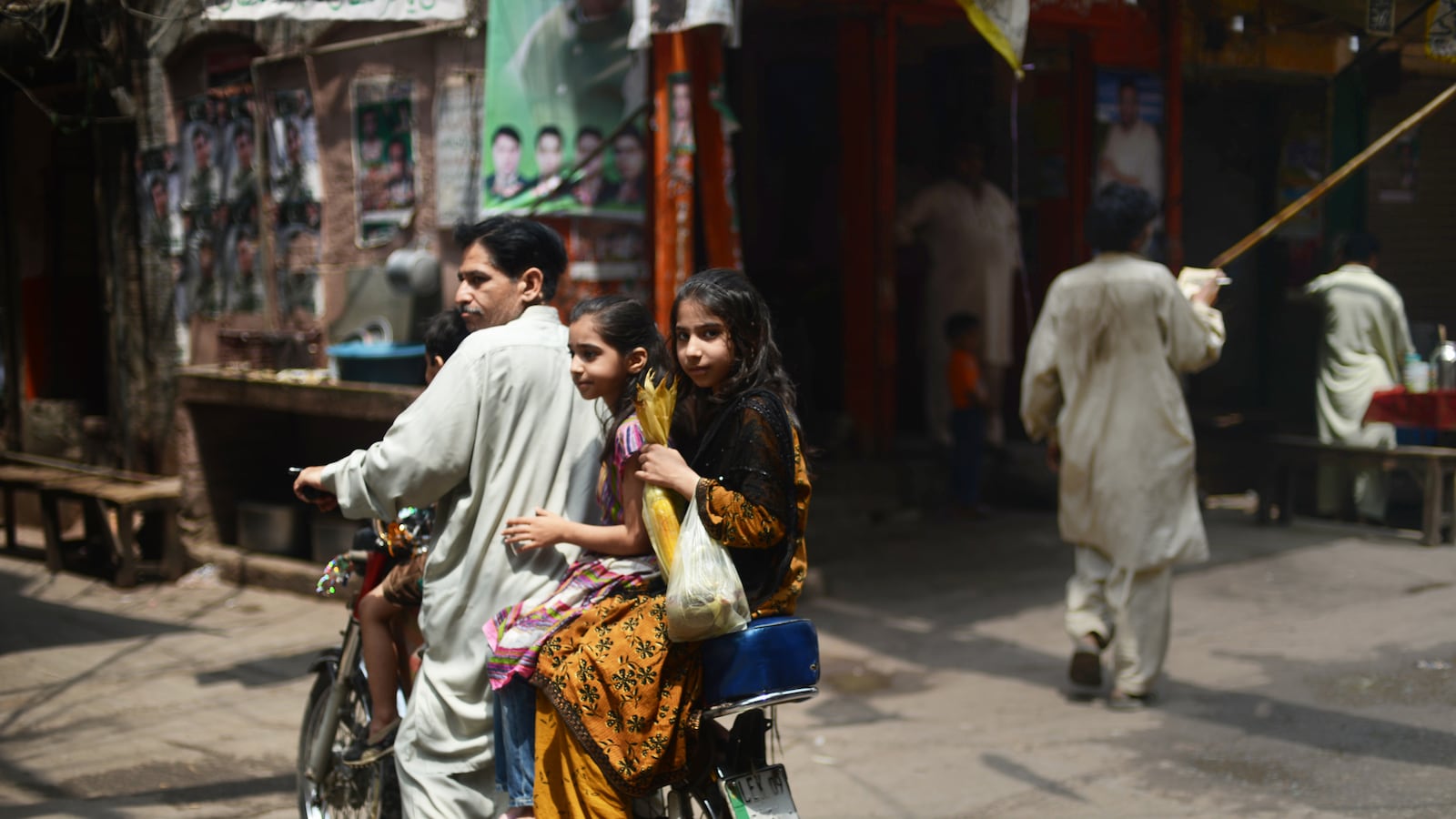“If we meet at a party in New York you might ask me where I’m from,” Shahan Mufti wonders at the start of The Faithful Scribe: A Story of Islam, Pakistan, Family, and War. He has two answers. Born in Ohio to Pakistani parents, Mufti calls himself “100 percent American and 100 percent Pakistani,” his life “a year here, four years there, five months here, two weeks there.” Sorting out origins and identity are how Mufti narrates a history of modern Pakistan and the political turmoil of a country often described by some variation of “the world’s most dangerous place.” (The Economist put that label on one of its covers in 2008, representing Pakistan as a grenade). Mufti’s incisive, sensitive book—half memoir, about his family’s deep roots in Pakistan, and half history of the state, which he tells through the discovery of his own sprawling family tree—describes a place that might as well be invisible in that explosive analogy: a country with a unique, founding mission to merge constitutional democracy and Islam; a county defined today not by its peoples’ extremism but their shared history.

Mufti moved to Pakistan as a journalist in 2007, just before the war between the government of Pervez Musharraf and Islamist militants erupted with the takeover of Islamabad’s Red Mosque. That battle was tied to and enflamed the ongoing war in the northwest tribal areas bordering Afghanistan between the Taliban and the American and Pakistani military, increasingly fought from the skies with CIA-operated drones, even as the conflict on the ground revolved, as Mufti notes, around Pakistanis killing Pakistanis. Mufti scrutinizes this situation with a writer’s candor and a weary reporter’s occasional outrage. He focuses much of his attention on a third war, often simmering under the surface, between Washington and Islamabad. “The militaries of the two countries, all handshakes and stiff smiles for the cameras, seem to extract special satisfaction from terrorizing each other,” he writes. They are “entangled in a secretive war that is unlike any other in the world.”
By walking a line between heady political proclamations and soulful family reflection in The Faithful Scribe, Mufti underscores the gap between what we often read about Pakistan and what much of life there is actually like. He writes a pastoral scene from visiting an ancestor’s grave (unexpectedly well-tended by an unknown, distant relative) in a town in the green foothills of the Punjab outside Lahore: “Here, Islam is what lay strewn in the landscape. Islam is centuries old richly decorated shrines, and Islam is family stories.” What he calls a “papery palace of stories” sustains identity and ties Mufti to place. The palace includes notes from his travels in Pakistan and India, interviews with relatives, and, most of all, copies of an extensive, elaborate family tree recorded by a distant relative in the late nineteenth-century, which linked his family directly to one of the companions of the Prophet Mohamed.
Place and time merge throughout Mufti’s book: the mountains of New Mexico, where he went to boarding school in 1997, resemble the mountains of Pakistan where nuclear weapons were tested. On the day after India and Pakistan go to war in 1971, his parents married in Lahore, “as fighter jets screeched overhead.” In 1988, a plane crash killed President Mohamed Zia, but also claimed Mufti’s cousin Zahid, an aid to a prominent Pakistani general. Onboard Zia’s military plan, the president, his generals, and their American guests sat in an air-conditioned cabin; “Zahid, a young captain, would have sat in the back without any air-conditioning with a dozen or so military officers.” A day after September 11th, Mufti receives a phone call in his college dorm room from an agent from the Bureau of Alcohol, Tobacco, and Firearms. The mundane nature of the call belied the reality that his identity took on new interest as George W. Bush declared a global war on terror, with special interest—and misunderstanding—directed at Pakistan. “Sitting far away in Vermont, I was being pulled back closer to the foundations of Pakistan’s national story.”
He gets there by tracing his family. “You don’t question family stories,” he says at an outdoor café in Central Park on a humid October afternoon. “I don’t think anyone goes through the trouble of asking, did my grandmother really say this? Did my granddad really do that?” The fragile, weathered family tree, nearly 150-years old, stashed in his uncle’s closet in Lahore gave new definition to what he otherwise thought of as myths, stories he’d known “through osmosis—there are always the stories.” His uncle found the family tree neatly stored in Mufti’s grandfather’s closet, after his death. In the scribe who created it, along with a detailed personal history that the scribe wrote, he says, “I found the person who was as close to a news reporter or a storyteller hundreds of years ago, in my family. Once I found the family tree, this story was not just that the scribe had written history, but when he wrote it—the first encounter between East and West; the first, if you will, clash of Islamic civilization and Western civilization.” That phrase resonates for Mufti, since it colored classroom discussions at college in the weeks after 9/11 and shaped the Bush administration’s perspective of its war in Afghanistan and Pakistan. (Mufti later describes the violence devastating his country as “a clash of civilizations inside Pakistan.”)

But it was in India—in fact a hospital bed in New Delhi—where he really started to write. He moved there on a Fulbright fellowship after college, but only weeks after arriving, he suffered a terrible climbing accident. Writing was a kind of therapy, “a way of understanding the strange world I inhabited.” It allowed him to interrogate his own prejudices embedded in a sense of national identity. In the hospital, he needed a blood transfusion, which he writes about as a matter of national interest: “For a brief second, this thought did cross my mind: Is this the blood of a Hindu? Or is this a Muslim’s blood?” The need for such candor was why he wrote. “The mission of the book was not as much to come to terms with who I am or what I am, as much as to lay it out, say it the way it is,” he says of that scene. He writes and speaks as openly about American-Pakistani relations, in particular the drone program. “Both governments were in the business of lying to their people so the drone program could work,” he says. “And that has been this entire war: being allied but also lying to each other, killing each other, and—in order to make this work—lying to their people about what they’re doing.”
He points to a speech Pervez Musharraf gave on national television barely a week after 9/11, in which he made the case for cooperating with the American war against the Taliban in Afghanistan. But Musharraf also insisted in that address on the need not only to negotiate with the Taliban, but to protect them: “Our effort is somehow to come out of this serious situation so Afghanistan and the Taliban do not face any kind of harm,” Musharraf told Pakistanis. The speech was widely reported, even posted in full on most American news websites. “It was there for us to read,” Mufti insists. “But we weren’t listening at that time. It didn’t fit with George Bush’s plan. That was day one of this alliance. And now we wonder why this has all gone so wrong.”






